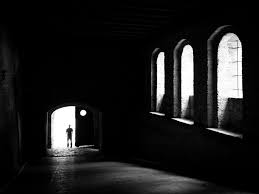By guest contributor MJ Lisbeth
Dr. Christine Blasey Ford is set to testify about the sexual assault she experienced from Supreme Court nominee Brett Kavanaugh when they were teenagers.
Meanwhile, four men who, as children, were sexually abused by a religion teacher have reached a $27.5 million settlement against the Diocese of Brooklyn and a local after-school program. They filed their suit in 2013.
Both stories, naturally, grabbed my attention because I have survived childhood sexual abuse by a priest. But they also highlight the obstacles victims face in calling their abusers to account, let alone in healing or finding any kind of justice.
The young men are, if you’ll pardon my choice of words, more fortunate than most victims, not only because of the monetary settlement , of which they will probably see less than one might think. First of all, the incidents are relatively recent: between 2003 and 2009. The young men were boys between the ages of 8 and 12, which means that they are in their 20’s now. New York State, which has some of the nation’s most restrictive (for victims) laws regarding sexual abuse, essentially makes it impossible for anyone over 30 to charge or sue someone who sexually abused him or her.
As it happens, one of the boys told his mother about the abuse. She reported it to the police and in September 2009, that teacher—one Angelo Serrano—was arrested. Two years later, he pleaded guilty to first-degree sexual conduct charges. He, now 67 years old, is serving a 15-year sentence at Fishkill Correctional Facility.
Similar scenarios never, it seemed, played out when I was abused by a priest in the late 1960s or when Dr. Ford was assaulted by an inebriated teenaged Kavanaugh in the early 1980s. While I do not know all of the particulars of her story, I feel safe in guessing that one reason why she might not have reported the assault at the time it happened is that attitudes about sexual assault and its victims weren’t much different from what they were when I was abused.
That is to say, even if she were an articulate young woman, as I suspect she was, she might not have had the language to express what she had experienced, and certainly not the perspective to understand how it was affecting her. Worse, even if she had the means to communicate her ordeal, she might not have found very many people who could empathize with, or would believe, her.
In other words, she might have been silent about her experience in 1982 for basically the same reasons I couldn’t talk about being sexually abused by a priest a decade and a half earlier.
And, coincidentally, she is now speaking out three and a half decades after the event: the same amount of time that elapsed from the time a parish priest abused me to the first time I told anybody about it.
My then-partner—the first person I told—could have (but, thankfully, didn’t) asked the same question many are asking about Dr. Ford: Why now? I seriously doubt that she is seeking publicity (something of which Anita Hill was accused); indeed, her friends and classmates at the time of her assault report that she “disappeared socially” after the attack. Also, I don’t think someone would volunteer to subject herself to an FBI investigation for the proverbial 15 minutes of fame.
Rather—again, I am going to speculate, as I cannot read Dr. Ford’s mind—I reckon that seeing Kavanaugh on national television revived memories of her ordeal. Whether she didn’t think about it at all, or it murmured through her subconscious—or shouted at her in nightmares—she probably didn’t have to recall it in a visual and visceral way until his nomination was announced.
In brief, the hearings were probably a “trigger” for her—just as my niece kneeling to receive her first Holy Communion, an event I recounted in a previous essay, brought back memories of my sexual abuse.
Carrying our “secrets” for 35 years made it all the more traumatic for me and, I imagine, Dr. Ford to see them played out, as it were, all over again. And the passage of such time makes it more difficult to resolve the issues associated with it—let alone to find justice or closure—than it does when less time has passed.
What her story, and that of the young men in the Diocese of Brooklyn (the same one, by the way, in which I was abused) shows that in the “best” case scenario, such as that of the young men, reciprocity and healing, though not impossible to come by, is very difficult to obtain. Therefore, it is necessary for the Church and other religious institutions, as well as our legal systems, cultures and communities, to make it safe for victims to speak out and find the help we need in a timely fashion. Otherwise, the material costs, not to mention the suffering (How many victims have become substance abusers or suicides?) will overwhelm churches, families and communities—as well as the victims ourselves.
image credit: https://pxhere.com/en/photo/445643













